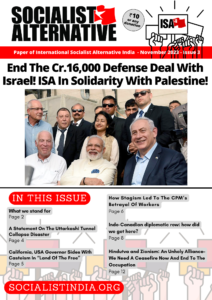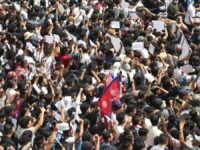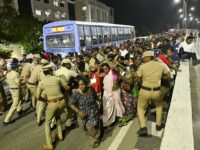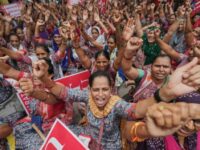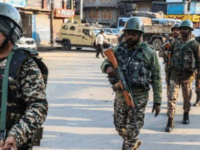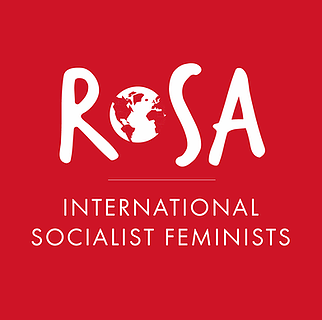Canada: Fighting Caste Discrimination in British Columbia
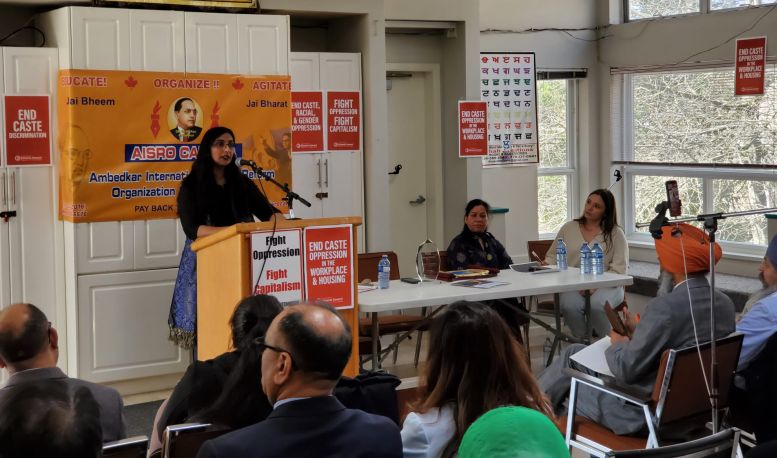
In December 2018, BC taxi driver Manoj Bhangu was physically assaulted at a workplace Christmas party by two of his co-workers when a business dispute got out of control. In the course of the assault, the two men attacked Bhangu not just with fists but with slurs.
These slurs were not racist, nor LGBTQ-phobic, nor any of the varieties of demeaning verbal attacks that immediately come to most Canadians’ minds. The co-workers in question, brothers Inderjit and Avninder Dhillon, are of the same South Asian ethnicity as Bhangu. They speak the same language and perform the same work. The Dhillons, as was found by the British Columbia Human Rights Tribunal on March 15 of this year, abused Bhangu in a different way: their slurs were based on his caste. The caste system was created by the then-ruling classes more than 2,000 years ago in South Asia as a system of oppression that divides people into a rigid hierarchy of groups based on birth, with “lower” groups facing serious discrimination and even violence by those “above” them. Though primarily associated with Hinduism, other religions that later arose in or moved into South Asia, including Sikhism, Islam, and Christianity, were also penetrated by caste. For centuries, the caste system has been systematically used by South Asian ruling classes to divide and exploit the mass of ordinary people.
Caste discrimination is also faced by oppressed-caste workers in the South Asian immigrant community in North America. It has become a pervasive issue as the number of South Asian immigrant workers has expanded in the last decades.
In Seattle earlier this year, a movement led by the city council office of Socialist Alternative’s Kshama Sawant won a strong ban on caste discrimination in that city, a first for any jurisdiction outside of South Asia. This was the result not of quiet backroom deals with the city’s ruling Democratic Party, but of the fighting strategy from Sawant and members of Socialist Alternative, alongside community groups, unions, and members of all religions and castes.
The victory gained worldwide headlines, and Canadians took notice as well. The Toronto District School Board, the country’s largest, proposed and passed in short order a resolution on caste discrimination (more on this below). Two Surrey, BC-based organizations, the Ambedkar International Social Reform Organization (AISRO) and the Poetic Justice Foundation (PJF), and Kshama’s council office discussed how a campaign similar to that waged successfully in Seattle could be built in BC. History and logic prove that under capitalism, ordinary people can’t rely on the rulings of allegedly impartial commissions or courts to go our way. These community groups saw the movement that was built in Seattle and saw that this was the way to go.
This led to a public meeting on Saturday, April 1, co-hosted by AISRO, PJF, and Socialist Alternative Metro Vancouver, in which the foundations for a campaign to combat caste discrimination in BC were laid. About 75 people filled the meeting room at the Indo-Canadian Seniors Society in Surrey, emceed by Mo Dhaliwal of PJF, and they left bearing the genesis of what could develop into a major campaign and victory in BC and across Canada.
Allie Pev of Socialist Alternative began the proceedings with a powerful land acknowledgement that drew parallels: “The forms of oppression the Indigenous and non-Indigenous people face have been allowed to thrive under a system of capitalism and colonialism, and these are not welcome on Indigenous territories.”
Leslie Kemp, also from Socialist Alternative, let the audience in the room and online know about our organization’s successes in local campaigns as “a small wheel that can turn a big wheel, that will move an even bigger wheel,” particularly referring to the successful campaign, in which Socialist Alternative had an important role, that forced the BC government to raise the minimum wage from $10.25 to $15 per hour.
Journalist Gurpreet Singh spoke about another attack on millions of Indians living in India, Prime Minister Narendra Modi’s 2019 Citizenship (Amendment) Act. This was an assault primarily on the citizenship rights of Indian Muslims, which our council office in Seattle also vigorously protested, passing, through Seattle City Council, a condemnation of the Act. He also reminded those present of Canada’s stripping of Indo-Canadians’ voting rights in 1907, a right which was only won back forty years later.
Gurwinder Singh Dhaliwal spoke mainly in Punjabi about Balwant Singh Khurdpur, a Sikh activist from India in the early 20th century, who both fought against anti-immigrant worker laws in British Columbia and against British imperialism in India.
The most personal and shocking comments of the afternoon were made by AISRO activist Kamlesh Ahir, who spoke of the insults and degradation heaped upon her and her family because of their Dalit caste status. Even the seemingly innocent questions “Where are you from? What is your last name?” are used by dominant-caste people to tease out status, which cannot be determined by looks or language. And, importantly, she spoke of the danger of the far-right, in particular the Rashtriya Swayamsevak Sangh (RSS), a Hindu-supremacist paramilitary force linked to Indian Prime Minister Narendra Modi, which has long provoked caste- and religious-based violence in India and elsewhere.
Finally, Kshama Sawant took to the podium and built upon Kamlesh’s theme by warning of the dangers of failing to build a fighting movement independent of the political establishment. This was exemplified in the case of the Toronto District School Board (TDSB), where the school board members who brought the motion forward chose not to mobilize community support akin to Seattle’s, relying on private conversations with other school board members. The result was that they themselves ended up choosing to considerably water down their original demand. The TDSB will merely “recognize” caste discrimination and “file an application with the Ontario Human Rights Commission to request that they assess and provide a framework for addressing caste oppression in a public education context.” Meanwhile, the Coalition of Hindus of North America and other Hindu right-wing groups mobilized public rallies and declared victory. We can’t let that happen in BC.
Similar Hindu right-wing groups in the United States (some associated with the RSS) entered the Seattle fight to maintain their privileged caste positions in a variety of tones, from a feigned concern that discrimination against all South Asians would somehow be increased if the ban were to pass, to pleasant cooing that while of course they were against caste discrimination, they couldn’t support this particular motion for some vague reason. Kshama and the movement threw this disingenuous nonsense back in their faces and also told the more duplicitous or credulous members of the Seattle city council that they had a clear choice in their vote: either vote yes and stand against discrimination, or vote no and put yourself on the side of Modi and upper-caste people who will inflict such humiliations as telling a lower-caste Seattle tech worker that she was too spiritually unclean to use the same bathroom as her colleagues, as one woman testified. The ban passed 6–1.
Socialists stand in absolute and militant opposition to indignities like these, as we do against sexism, racism, LGBTQ-phobia and all other forms of oppression. If your blood also boils at these stories of injustice, sign the petition as a first step, and then get yourself, your community group, and your union local involved in this exciting and fast-developing campaign!
